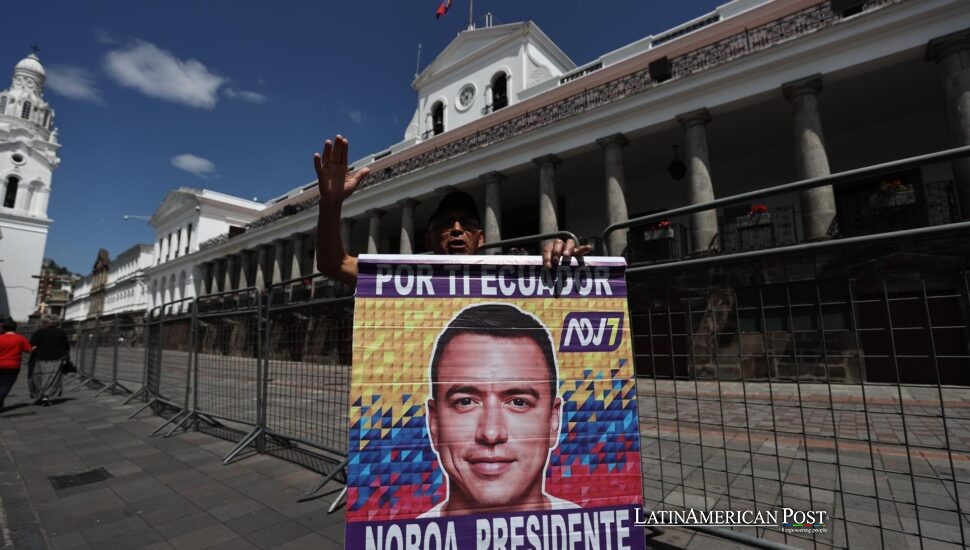Ecuador’s Radical Transition: Daniel Noboa’s Bold Path Forward

The 37-year-old Daniel Noboa stands out as a powerful presence in Ecuador’s evolving political environment. Following reelection to serve his complete term he exercises strict authority to combat crime while promoting economic freedom thus reshaping national priorities and confronting established power structures.
A New Face in Power
Daniel Noboa’s meteoric ascent to the Ecuadorian presidency, first in a short interim term and now as a full-term leader (2025–2029), has made him the youngest president in the nation’s democratic history—and, indeed, in all of Latin America. Born in Miami in 1987 to Álvaro Noboa, a wealthy banana magnate who ran repeatedly for Ecuador’s top office, Daniel Noboa appears to have finally fulfilled his father’s long-cherished ambition. Yet his victory is strikingly his own, fueled by social media savvy, millennial instincts, and a populist tilt that caught many political veterans by surprise.
His early life straddled two worlds. He was raised partly in Ecuador, where politics was practically the family business, and partly abroad, attending prestigious schools and immersing himself in the family’s multinational enterprises. For much of his twenties, he seemed content to remain in the corporate realm. Then, in 2021, he took his first steps in politics as a member of Ecuador’s National Assembly. That experience apparently sparked ambitions far beyond legislative corridors: less than four years later, he would claim the presidency on a bold pledge of security crackdowns and market reforms.
Despite only brief stints in public office, Noboa quickly cultivated an image of youthful efficiency and no-nonsense leadership. Short, impactful speeches—some lasting mere minutes—have become his trademark, while his TikTok videos poking fun at opponents or highlighting personal workouts captivate millions. “He’s proven that direct, unvarnished communication can override traditional campaign methods,” says one former political ally. This ability to bypass mainstream media—combined with an unwavering message of “A New Ecuador”—secured his reelection by a margin of over one million votes against leftist contender Luisa González. Her refusal to recognize the results, alleging “fraud,” has done little to undermine Noboa’s firmly established lead.
Tough on Crime, No Stranger to Controversy
From the outset of his brief first term, Noboa vowed to be tough on organized crime, declaring what he called a “war” on violent gangs and narco-trafficking rings. It’s a stance that resonates with many Ecuadoreans tired of skyrocketing homicides and prison riots—but critics decry the alleged human rights violations that have accompanied his crackdown. Local activists claim he gave confidence to police departments. The distinction between warranted police action plus excessive authority becomes unclear.
The Noboa administration often dismissed such claims. It frequently pointed to public requests for safety as the top priority. He has placed soldiers on street patrols in some cities, authorized them to reinforce overcrowded prisons, and repeatedly extended states of emergency. The move drew criticism most recently when Noboa declared such measures just before an election in provinces known to support his opponent. He claims the deployment counters upcoming threats directly. He claims the deployment directly counters nearby dangers. Opponents consider it a plan to lower voter participation in areas of high support for political rivals.
Noboa has shown a similar willingness to make divisive choices. For example, he received international criticism when he commanded police to enter Mexico’s embassy in Quito. They arrested a politician connected with the left-leaning opposition. That person was under a prison sentence for corrupt behavior and had asked for protection at the embassy. Although Noboa defended his actions as upholding Ecuador’s judicial system, critics at home and abroad lambasted it as a violation of diplomatic norms—and an authoritarian flex from a newly minted leader.
Rifts, Allies, and Personal Life
Noboa’s leadership style, which supporters applaud as “decisive” and critics call “dictatorial,” has also manifested in personal feuds. A high-profile conflict with his vice president, Verónica Abad, resulted in diplomatic assignments that shunted her out of day-to-day governance. He first posted her to Israel as ambassador, then replaced her soon after. Courts have attempted to reverse some of his decisions, but his ongoing maneuvers consistently keep her sidelined.
Turbulence in his private sphere has spilled into the public eye. Former spouse Gabriela Goldbaum has accused him of “violence by proxy” over custody arrangements for their daughter. Meanwhile, Noboa has sued to protect his financial privacy against an insurance firm he believes leaked personal details during the couple’s divorce proceedings.
Married to social media influencer Lavinia Valbonesi, Noboa often shares glimpses of his domestic life online. The birth of their son, Furio, took place in Miami during Noboa’s earlier term, reinforcing his cross-border identity. True to millennial form, he flaunts his love of fitness, posting videos of gym sessions, sporting newly acquired tattoos, and wearing fashion-forward ensembles that blend swagger with formality. Even his official inauguration generated memes when he paired a dark suit with chunky designer shoes, defying old-school political norms.
A Polarizing Figure with Global Outlook
Noboa repeatedly labels himself a “centrist,” praising social justice aims one moment and championing free markets the next. Initially an admirer of Brazil’s Luiz Inácio Lula da Silva, he now embraces pro-business policies, especially those that strengthen Ecuador’s bonds with the United States. He touts a tax-friendly environment to draw foreign investors but faces pushback over cutting social subsidies on basics like gasoline. These rollbacks have stirred protest in the past, yet so far, Noboa has managed to avoid the large-scale uprisings that plagued previous Ecuadorian administrations.
His ability to navigate tension—whether with indigenous groups, external governments, or local activists—may decide the success of his next four-year term. As violence driven by organized crime looms, many Ecuadoreans expect a president who can deliver on security without trampling civil liberties. On the economic front, unemployment remains stubbornly high, even though Noboa pledges significant job creation through private-sector growth. “He’s marketing a narrative of possibility,” one commentator notes, “but reality may test his blueprint.”
Also Read: Peruvian Shadows: Humala’s Trial, Sentencing, and Political Saga
Perhaps no label captures Daniel Noboa’s presidency better than “disruptive.” Some people admire him as an invigorating change after long partisan gridlock, while others view him as an obstinate, privileged scion who pushes boundaries without restraint. Yet one fact is indisputable: Ecuador’s quest for stability and growth has been expressed through Noboa’s electoral success, which represents a shift between generations. Ecuador’s youngest president plans to redefine national politics by using social media to communicate forcefully with citizens while maintaining strict crime policies and aggressively reforming the country’s unstable economy. The upcoming four years will be a significant phase in Ecuador’s democratic development regardless of his ultimate performance.




